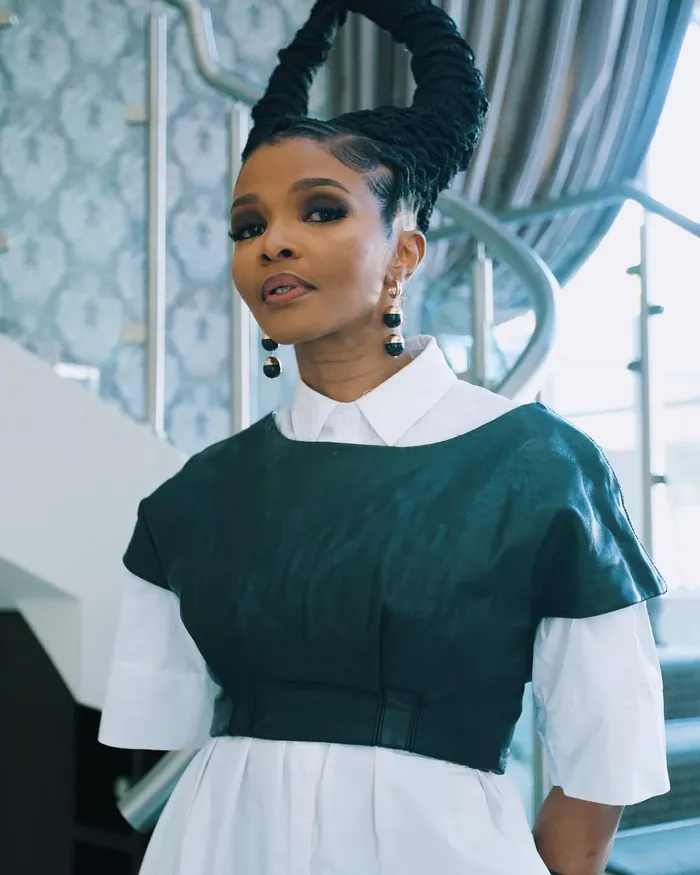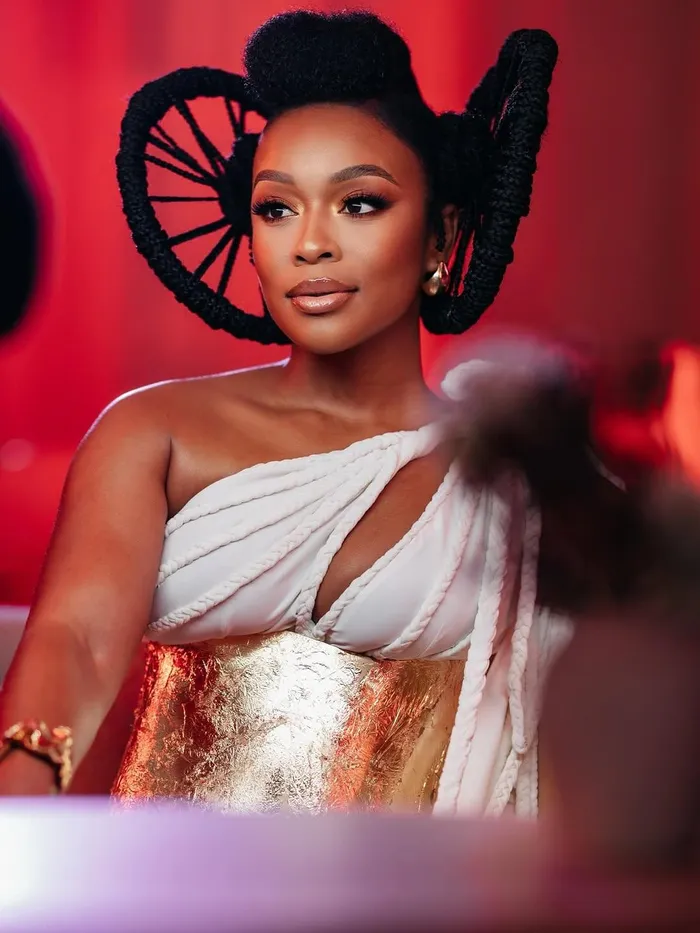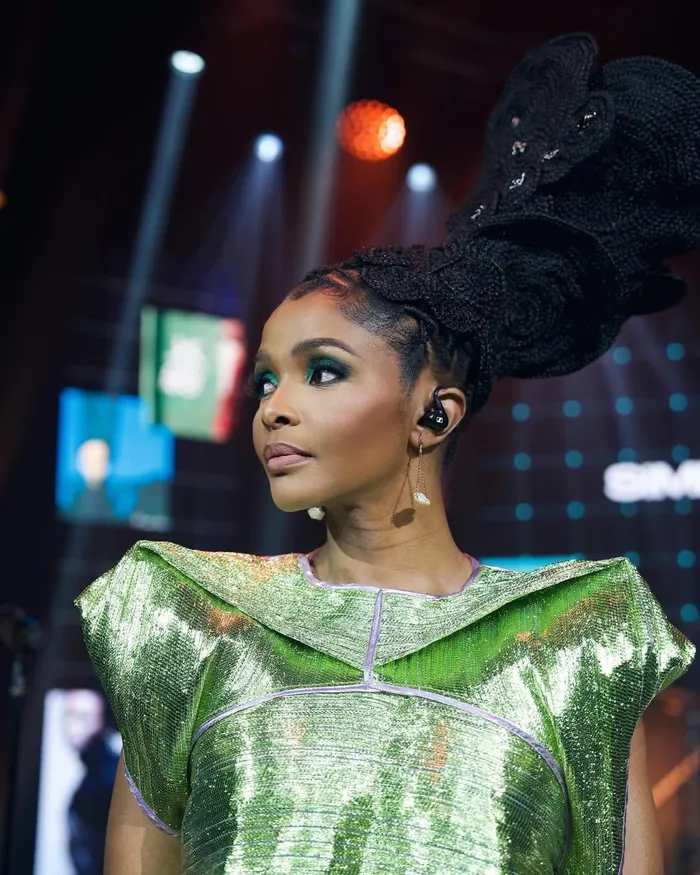
Musician Simphiwe Dana often enlists hairstylist Tumelo Mpholo to help bring her ideas for her African-inspired hairstyles to life.
Image: Instagram/Simphiwedana
A lot of things may not be certain, but one thing is that African women have been celebrating their crowns and plaiting them in different ways.
African women's hairstyles have become a point of discussion after multi-award-winning singer-songwriter, Simphiwe Dana created a public discourse.
Dana posted on social media her disappointment over not being acknowledged as inspiration behind the hairstyles on actress Nomzamo Mbatha and "Shaka iLembe". She later deleted the posts from her Instagram and X account.
“Honey, there’s a difference between appreciation and appropriation. You’re not the only one. I’m fed up. It’s deeply disconcerting and cringe,” Dana wrote, with a picture of Mbatha from her Creme of Nature, ambassador reveal.

Actress Nomzamo Mbatha was the target of Simphiwe Dana's statement over afro-centric hairstyles, where she wanted credit.
Image: setlifestudiossa
Since ancient times, hair has always been something worth celebrating and Dana has become well known for her afrocentric hairstyles that are inspired by what Africans have been doing.
Hairstyles held profound significance in ancient African societies, serving as powerful symbols of an individual's status, economic standing, marital status, and social role. Beyond their aesthetic function, they also played a crucial role in spiritual divination.
The late Miriam Makeba was inspired by the hairstyles of the Fulani women of West Africa after she and her husband Stokely Carmichael quit the US and moved to Guinea in the 1970s.

Simphiwe Dana rocking one of her signature afro-centric hairstyles that have become a part of her artistic look.
Image: Instagram/@simphiwedana
The style of the Mangbetu women of the Democratic Republic of Congo have also influenced afrocentric hairstyles. To signify high status within the community, Mangbetu women tightly bind their babies' heads with cloth, fostering an elongated head shape.
While Dana is right there is a difference between appreciation and appropriation and while it is well documented that throughout her over 20 year journey in entertainment, she has donned afro-centric hairstyles, and they have become a part of her artistic vision however there is no evidence linking her to the origins of the hairstyle.
Countries across Africa have deep historical ties to the evolution of afro-centric hairstyles. More women are coming on the bandwagon and shows like “Shaka iLembe” are showing the history of hair for more to see.
IOL Lifestyle
Related Topics: